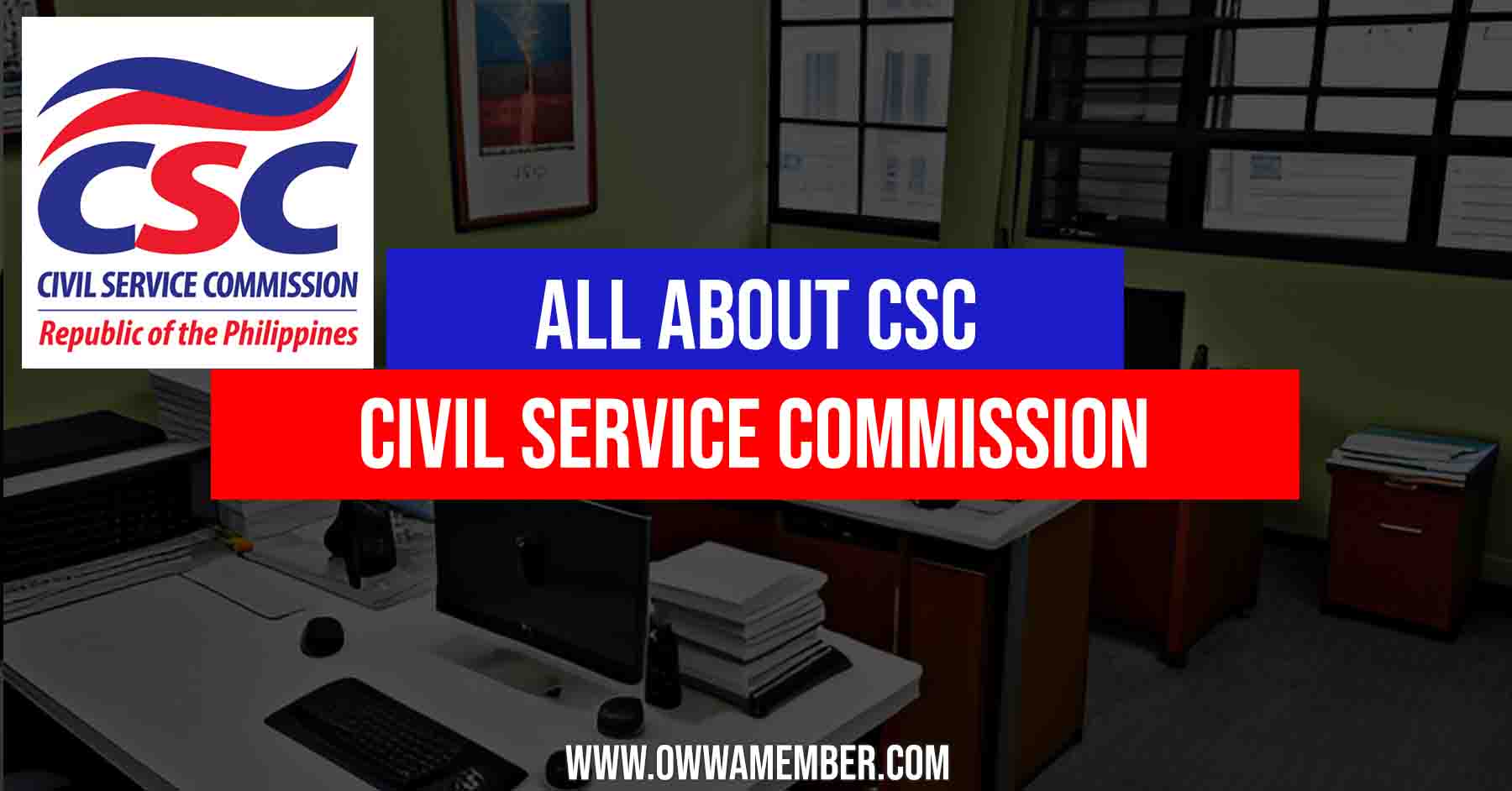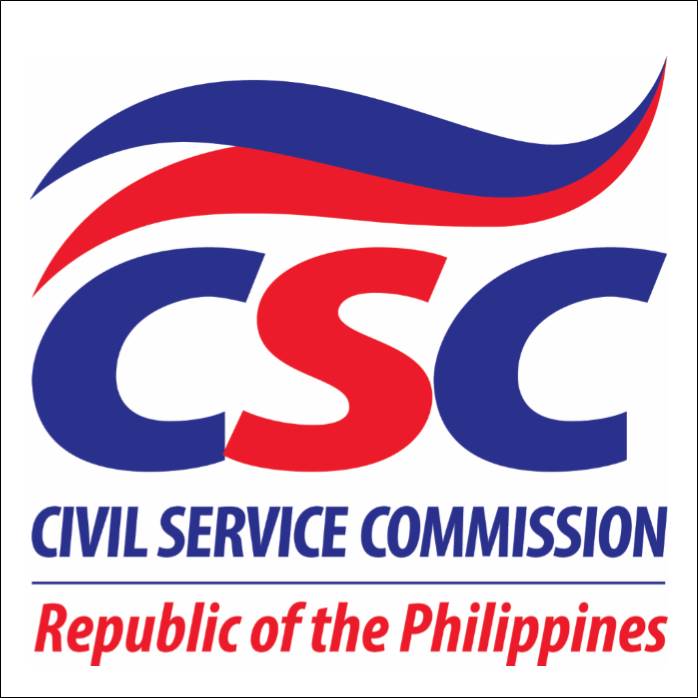Working as a government employee is beneficial as it provides various opportunities and a decent salary. That’s why many Filipinos dream of working for the government. However, not everyone qualifies as a government employee. To realize this dream, Filipinos should pass the Civil Service Exam of the Civil Service Commission (CSC). But before anything else, what is the Civil Service Commission (CSC)? Read on as we share its history, mandate, and programs.
The enactment of Public Law No. 5 created the civil service system in the Philippines. Through the Second Philippine Commission, the creation of the Civil Service Board resulted in the reorganization of the Bureau. The Civil Service Commission (CSC) applies measures to bolster the merit and reward system. In addition, the Commission incorporates all human resources development programs and regulates a management climate beneficial to public responsibility.
Contents

What is the Civil Service Commission?
The Civil Service Commission (CSC) is a government-owned and controlled agency that ensures government workers’ qualifications. Founded under the Civil Service Law of 1937, CSC handles the examinations, hiring, and promotion of government workers. CSC applies meritocracy while choosing government employees. The amended Republic Act No 2260 also led to the acknowledgment of the Commission as a department and its status as a constitutional body.
Under the EO 292 or Administrative Code of 1987, the CSC should promote courtesy, efficiency, integrity, morale, progressiveness, and responsiveness in the Civil Service. Its role is comparable to corporations’ human resources departments as the Commission regulates civil servants’ employment and working conditions.
History
In 1900, the Philippines established the civil service system through Public Law No. 5, An Act for the Establishment and Maintenance of Our Efficient and Honest Civil Service in the Philippines Island. It led to the Civil Service Board foundation, which consists of a Chairman, Chief Examiner, and Secretary. The Civil Service Board administers civil service examinations and imposes standards for the service designation of employees in government.
In 1905, the government reorganized the Bureau, and the merit system was established through the 1935 Philippine Constitution, serving as the employment basis in government. In the following years, the jurisdiction of the Commission expanded to the three (3) government branches, including the national, local, and corporations. In 1959, the Civil Service Law, or the Republic Act 2260, was enacted, which led to the conversion of the Bureau of Civil Service into the Civil Service Commission.
The Commission also gained its department status. In 1975, the Commission’s role was revised with Presidential Decree No 807 or the Civil Service Decree of the Philippines, acting as the government’s central personnel agency. Today, the Commission implements the mandate of the 1987 Administrative Code, stating prevailing policies and principles in the administration. It also acknowledged the right of government employees to collective negotiations and self-organizations with the 1987 Constitution as its framework.
Pledge
The CSC officials and employees are committed to the following pledge:
- Authorize personnel will serve efficiently, promptly, and with respect
- Ensure strict compliance with service standards and provide written explanations for delays in frontline services
- Promptly respond to complaints and apply corrective measures regarding the Commission services through the complaint and assistance desk.
- Value all citizens, needs, suggestions, and comments, including individuals with special needs, like senior citizens, pregnant women, and differently-abled
- Provide the public with 24/7 access to information on activities, programs, services, and policies via the CSC website.
Mandated Functions
As per the Executive Order No 292, the Commission should enact the following functions:
- Regulate and impose the statutory and constitutional provisions on the merit system for all ranks and levels in the Civil Service
- Specify, revise, and execute rules and regulations on Civil Service law provisions and other pertinent laws.
- Promulgate guidelines, standards, and policies for the Civil Service and incorporate plans and programs, promoting efficient, effective, and economical personnel management in the government
- Develop regulations and policies to administrate, maintain, and implement compensation and position classification; the Commission will also impose standards to establish, allocate, and reallocate pay scales, classes, and positions.
- Provide opinions and rulings on Civil Service and personnel matters, which binds heads of agencies, departments, and offices; may also be taken to the Supreme Court for reviews.
- Designate and educate its employees and officials based on the law and exercise control and supervision of the Commission’s activities.
- Administer, manage, and organize Civil Service examinations. The Commission may also call any government official or entity to help them prepare and administer Civil Service examinations. Also, the Commission can request the utilization of buildings and facilities and the transportation of examination materials.
- Specify all forms utilized for Civil Service examinations, reports, appointments, and other required by law, rules, and regulations.
- Designated positions in the Civil Service
- Create, implement, and assess programs relevant to the retention and development of competent and qualified employees in the public service.
- Discern and resolve administrative cases set in motion or taken before or on appeal, such as review decisions, contested appointments, and actions of attached offices and agencies.
- Issues subpoena and subpoena duces tecum to produce records and documents relevant to inquiries and investigations as per its authority bestowed by the Constitution and pertinent laws
- Give guidance to the President on matters relevant to personnel management in the government service and submit an annual report on the personnel programs.
- Conduct applicable actions on all personnel and appointment matters
- Investigate and audit personnel action and programs of agencies, bureaus, departments, offices, local government, and government-controlled corporations. The Commission should also perform periodic reviews of the actions, decisions, and conduct of officials, employees, and offices and impose suitable sanctions.
- Designate authority to perform functions of agencies, departments, and offices.
- Supervise the retirement program of government officials and employees, assess retirement qualifications, and approve government services.
- Sustain and preserve personnel records of all Civil Service officials and employees.
- Fulfill all functions associated with a central personnel agency and those provided by law.

CSC Programs
HR Initiatives
Program to Institutionalize Meritocracy and Excellence in Human Resource Management (PRIME-HRM)
The PRIME-HRM aims to improve the quality of human resource management. It integrates various initiatives and programs to assist government agencies and boost their performance. Furthermore, it helps government agencies excel by enhancing their HR systems and practices. The concept of this program is to raise the engagement of employees from various agencies, including HRO and rank-and-file staff.
Strategic Performance Management System (SPMS)
The SPMS aims to align employees’ performance with the organizational goals. It allows employees to reach the organization’s goals while fulfilling its targets. Meanwhile, the Philippine Development Plan and the Agency Strategic Plan aim to align the organizational performance with the objectives and goals of varying constituents. Also, it ensures the organization’s performance is associated with the procedures and systems of various HR.
Competency-Based Recruitment and Qualifications Standards
The Commission also aims to incorporate the competencies of various government agencies involved in recruiting and training employees. With the establishment of CBRQS, the Commission provides a foundation to develop highly efficient civil servants. The CBRQS is a set of attitudes and skills that can help achieve organizational goals.
Competency-Based Learning and Development Program
The CBLDP aims to incorporate government agencies’ various competencies into its human resource systems. It assists an organization in addressing employee development gaps. The program utilizes a framework that acknowledges the needs and standards of organizations in assessing and developing their employees. This program focuses on the needs of employees by providing training programs that meet their requirements, such as classroom training, development activities, and on-the-job training.
Leadership and Coaching Program
This program assists employees in developing their best selves and improving their performance. Under the LCP, employees can determine their best and develop their talents. While coaching isn’t a solution, it allows the employees to realize ways to achieve their goals.
Anti-corruption Initiatives
Report Card Survey
The RCS evaluates the quality and compliance of public government service with the provisions of the Anti-Red Tape Act of 2007. It’s a data-collection exercise that helps enact public accountability through civil society advocacy and media coverage.
Service Delivery Excellence Program (SDEP)
With the Report Card Survey, service offices may receive the following ratings: Excellent, Good, Outstanding, and Failed. The offices that obtained a Failed rating will undergo the Service Delivery Excellence Program (SDEP) to enhance their efficiency through workshops and training.
Contact Center ng Bayan (CCB)
This program is a feedback mechanism of the government that enables citizens to give suggestions and assessments on the procedures of varying frontline services. Founded by the ICTO-NCC and CSC, the CCB allows citizens to report their commendations and complaints.
ARTA Watch
The ARTA Watch is CSC’s way to support the Anti-Red Tape Act (ARTA) of 2007 implementation. Under this service, the officials of CSC will conduct random checks on frontline services. It also aims to increase law awareness and ensure quality government services.
Rewards and Incentives
Honor Awards Program (HAP)
The HAP is a CSC reward and incentive program that acknowledges government officials and employees who portray excellent work performance. This program aims to inspire and motivate government employees and officials to enhance the quality of their work.
Pamanang Lingkod Bayani
The PLBi is another CSC program that acknowledges civilian public servants who died in the line of duty or while performing their duties, responsibilities, and functions. It’s a tribute to deceased or slain individuals who exhibited the characters of a Bayani.
Learning and Development
Civil Service Institute
The CSI offers varying services to civil servants and government agencies, such as training and development programs to improve their performance and capabilities. It aims to develop HR capacity and leadership and establish foundations to help civil servants with their work.
Summary
Apart from administering Civil Service examinations, the Civil Service Commission (CSC) offers public jobs for government positions. The Commission also advocates fair treatment and employment opportunities for all applicants throughout the application process. Meanwhile, the Commission ensures only qualified applicants get the job for each position. Therefore, it is essential to pass the Civil Service examinations to become a government employee.